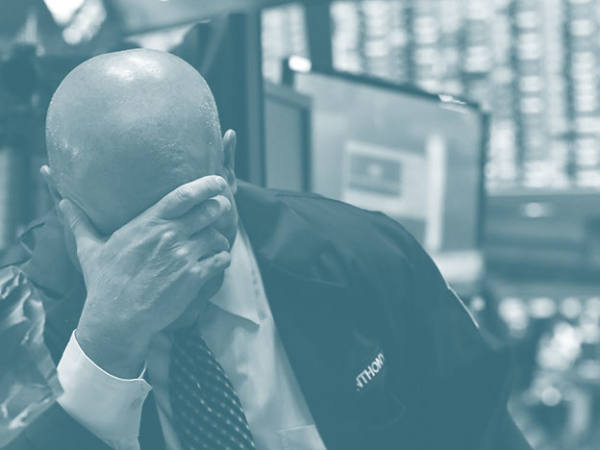The case for the rule is simple. History shows that shares are safer over longer periods than shorter ones, and so should be held by investors with longer time horizons - who tend to be the young.
And herein lie the first problems. Not all older investors have short time horizons, and not all young ones have long ones. If you're a 60-something wanting to leave a bequest to your grandchildren you probably have a longer time horizon than the younger investor saving for a deposit for a house or to pay school or university fees.
What's more, there's a difference between thinking you're a long-term investor and actually being one. The young investor who gets disheartened by falls in shares and sells up is behaving like a short-term investor, whatever his intentions.
Even if we ignore these issues, though, there's another problem - shares might not be safer for a longer-term investor.
Let's do the maths. Let's assume that long-term equity returns continue to average what they've been since 1900 – a real annual return of 5.2 per cent with a standard deviation of 19.9 percentage points, according to Credit Suisse. This implies that there's a 0.26 standard deviation chance (5.2 divided by 19.9) of losing money in a year. This is a 40 per cent probability. If returns in one year are independent of those the next, it also means that there's a 2.4 per cent chance of losing over a 20-year period.
It seems, then, that the odds favour the longer-term investor.
Not necessarily. A loss over 20 years is a much worse prospect than one over a single year. It would mean that almost all your investing lifetime has been wasted and even long-term investors have little chance of recovering from this.
There is, though, one thing that tips things in favour of long-term investors. I've assumed that returns are serially uncorrelated. But history shows that this hasn't been the case. Instead, over longish periods, equity returns have mean-reverted, with years of good returns leading to bad and vice versa. It is this that means that shares have been safer for the longer-term investor.
Sadly, however, this is less reassuring than it seems. The fact that the UK (and US) markets have mean-reverted in the past does not necessarily mean they will continue to do so. Worse still, looking only at UK and US history is as daft as looking at soldiers returning from a war and inferring that no one died. It is to commit the error of survivorship bias. A wider history tells a more alarming story – that stock markets can be entirely wiped out by war, hyperinflation, revolution or social unrest. Will Goetzmann and Philippe Jorion, two US academics, have pointed out that a quarter of the national stock markets that existed in the 1920s subsequently suffered a long-term closure.
In the short run, this risk of catastrophe is so minuscule that we can ignore it. But this is not necessarily true for a longer-term investor. If you were a Russian in 1910 or a German in 1919, it was much better to be a short-term investor than a long-term one.
For reasonable levels of risk aversion, therefore, it's quite possible that the small risk of a long-term disaster is just as unpleasant as the large risk of a short-term fall. This being so, shares are as attractive in the short term as in the long, so your time horizon and age are irrelevant.
There's a further consideration here. A key rule of investing is that what matters is the riskiness of your whole portfolio, not of any single part of it. You can afford to take on a risky asset if your other assets allow you to diversify that risk. In this context, there's a big difference between young and old investors. Young investors have an asset that retired ones don't. They have human capital, labour income. This changes things.
If labour income is uncorrelated with equity returns, then you can afford to take on more equity risk because you have an asset that diversifies it way. We can offset losses on shares by earning more.
It is to the extent that this is true that young people should own more shares than older ones.
But is it true? Obviously, it varies from individual to individual. If you work in the financial sector, it is not true, as your shares and labour income are positively correlated; there's a chance that a market crash would cost you your job as well as your equity wealth. For you, shares would be less risky after you've retired. But if you have a safe-ish job (a big if), then shares are uncorrelated with your human capital and so you can afford to hold more.
For the average worker, equity and human capital are only lightly correlated in the short term; we know this because shares have risen 50 per cent since March 2009 while unemployment has risen and real wages have fallen. But in the long run, the two should be highly correlated simply because both depend upon the state of the economy. Japan's 'lost decades' since 1990 show that long-term economic weakness hurts both shares and real wages.
In this sense, shares are actually safer for the retired investor than for one of working age, because he doesn't have to worry that he will lose his job at the same time as he loses on his shareholdings.
None of this means that all older investors should have higher equity weightings than all younger ones. But it does mean that the many investors who break the '100 minus your age rule' are not necessarily wrong. In investing, as in many areas of life, age doesn't matter as much as you think.











